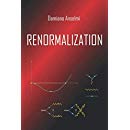Consider a functional integral
\[
\mathcal{I}=\int [\mathrm{d}\varphi ]\hspace{0.02in}\exp \left( -S(\varphi)+\int J\left( \varphi -bU\right) \right) ,
\]
where $U(\varphi ,bJ)$ is a local function of $\varphi$ and $J$, and $b$ is a constant. Then there exists a perturbatively local change of variables
\[
\varphi =\varphi (\varphi ^{\prime },b,bJ)=\varphi ^{\prime }+\mathcal{O}(b),
\]
expressed as a series expansion in $b$, such that
\[
\mathcal{I}=\int [\mathrm{d}\varphi ^{\prime }]\hspace{0.02in}\exp \left(
-S^{\prime }(\varphi ^{\prime },b)+\int J\varphi ^{\prime }\right) ,
\]
where $S^{\prime }(\varphi ^{\prime },b)=S(\varphi (\varphi^{\prime },b,0))$.
Proof
Make the change of variables
\begin{equation}
\phantom{(1)}\qquad\qquad\qquad\varphi _{1}=\varphi -bU(\varphi ,bJ) \qquad\qquad\qquad (1)
\end{equation}
in the functional integral. The functional measure is invariant, since we are treating (1) perturbatively in $b$. Call $\varphi=f_{1}(\varphi _{1},b)$ the inverse of (1) at $J=0$. We can write
\[
S(\varphi )=S(f_{1}(\varphi _{1},b))+b^{2}\int JU_{1},
\]
for a suitable local function $U_{1}(\varphi _{1},bJ,b)$. Then we have
\[
\mathcal{I}=\int [\mathrm{d}\varphi _{1}]\hspace{0.02in}\exp \left(
-S_{1}(\varphi _{1},b)+\int J\left( \varphi _{1}-b^{2}U_{1}\right) \right)
\]
where $S_{1}(\varphi _{1},b)=S(f_{1}(\varphi _{1},b))$. At this point, we are in the same situation we started with, but $U$ is replaced by $bU_{1}$, which is one order of $b$ higher. Repeating the step made above, we make the change of variables $\varphi _{2}=\varphi_{1}-b^{2}U_{1}$ and get
\[
\mathcal{I}=\int [\mathrm{d}\varphi _{2}]\hspace{0.02in}\exp \left(
-S_{2}(\varphi _{2},b)+\int J\left( \varphi _{2}-b^{3}U_{2}\right) \right),
\]
where $S_{2}(\varphi _{2},b)=S_{1}(f_{2}(\varphi _{2},b),b)$, $\varphi _{1}=f_{2}(\varphi _{2},b)$ is the inverse of $\varphi_{2}=\varphi _{1}-b^{2}U_{1}$ at $J=0$ and $U_{2}(\varphi _{2},bJ,b)$ is a local function. Proceeding indefinitely like this, we prove the theorem. $\Box$
This theorem was proved in
D. Anselmi, A general field-covariant formulation of quantum field theory,
12A1 Renorm
Eur.Phys.J. C73 (2013) 2338 | DOI: 10.1140/epjc/s10052-013-2338-5
and arXiv:1205.3279 [hep-th]
It is useful to convert the functional integral back to the conventional form (the one where the integrand depends on $J$ only via the term $\int J\varphi$ in the exponent) after a generic change of integration field-variables.

 Quantum Gravity
Quantum Gravity 


